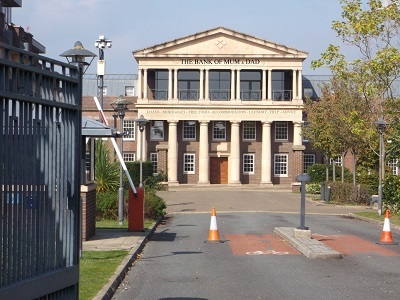Over the last few years, a whole bank (of sorts) has set up business in the property market – the Bank of Mum and Dad. The Bank of Mum and Dad is something of a droll term for the increasingly common situation where parents help their children with financial support to buy a property.
Some estimates suggest that around two thirds of first time property buyers are funded in part by the Bank of Mum and Dad.
In this Insider report we’ll look at some of the important points you need to consider if you are thinking of setting up as the Bank of Mum and Dad and helping your offspring to buy a property.
* Can you afford it? This is the very first question to ask when thinking about helping your children to buy property. If you can easily afford it all well and good – but it may not be a very good idea to improve their financial situation by worsening yours. Remember, if money is tight for them right now they have a much longer period to turn things around – do you have that luxury?
* Why are you offering to help finance their property purchase (or at least thinking about it) …. or why are they asking?
Different problems call for different solutions. For example, are your offspring not able to get a mortgage at all? Are they able to afford the mortgage repayments but can’t raise the deposit? Are their property ambitions just a bit too big for their pocket?
* Where’s the money coming from …. and how will that affect your financial situation? Are you planning to fund the purchase from savings, by drawing down cash from a pension, or by taking a loan or mortgage yourself? Downsizing their own home is another method used by some parents as a way of raising the money.
If you are fortunate enough to have a choice of funding methods, what is the most cost effective way of sourcing the money?
* What’s the best way of giving your children your financial support? Should you just provide a contribution towards the deposit, a contribution towards their mortgage repayments, or both?
One often overlooked method of support the Bank of Mum and Dad can offer is to provide a guarantee for a mortgage. This way, you won’t actually need to come up with the cash up front and, all being well, never.
* Who’ll own the property? You, your children or a combination of both? This is something you might want to take expert legal and financial advice on. Inheritance tax and the new 3% stamp duty premium for buyers who already own a property mean there may not be very many good reasons for becoming the owner or joint owner yourself.
* Will there be a formal financial arrangement between you and your offspring …. a casual arrangement …. or no arrangement at all? This is a difficult subject to have to think about, and an even more difficult one to talk about. Will your contribution be an outright gift, or will you expect or even need it to be repaid in some way at some stage? (If so how and when?)
* What are your offsping’s medium-long term plans and how does this affect things? Many young people lack long term planning skills but property is a long term project and this needs to be thought about at the outset.
Is this a property they’ll just use for a few years while at university, for a few years before taking a step up the property ladder – or will it be a home for the longer term, perhaps involving a partner and starting a family?
* What happens if things change …. or the unexpected happens? If your offspring are financially cash-strapped right now, what happens if their financial situation changes or worsens? For example, they lose their job, want to move in with a partner or vice versa, get married or leave work to look after children.
Consider whether it would be a good idea to hold back some of your financial support now as a contingency for the future.
* Work out a sensible budget from the outset. At the very least do a back-of-an-envelope calculation of what you can afford. Work out ….
…. Your maximum contribution from cash.
…. Your maximum contribution from borrowing/pensions/other.
…. Their maximum contribution from cash.
…. Their maximum contribution from borrowing.
Only by having a budget can you work out what they might be able to pay for a property. (Don’t forget to allow for Stamp Duty and buying costs.)
* Accept that their ideas about what makes a perfect property will probably differ from yours – but try to point them in the right direction by dropping a few subtle hints:
…. In property, location really is everything – not only in the ‘livability’ of a property but to its future value.
…. Boring and sensible properties usually make the soundest buys. For example, boring terraced and semi-detached houses are often better value and a more sensible proposition than that swish city living penthouse.
…. Learn how to spot potential. You can save a lot money by buying a property with potential and doing work compared to buying a property with the latest designer look, which normally comes at a premium. (But ask yourself if you will be expected to do any work!)
* If you insist on one thing, insist they get good, sound, impartial mortgage advice and opt for the most suitable mortgage for them.
Big banks and building societies are masters at luring in borrowers with glitzy marketing. Yet a few percentage points difference in the interest rate and subtle differences in the fees charged can make hundreds or even thousands of pounds difference in the annual mortgage repayments – and tens of thousands of pounds difference over the lifetime of a mortgage.
Recommend they shop, shop and shop around for a mortgage and get written details of the cost and fees of these before deciding.
For more useful articles and reports on surviving and succeeding in today’s property market keep checking back with Property Insider.


